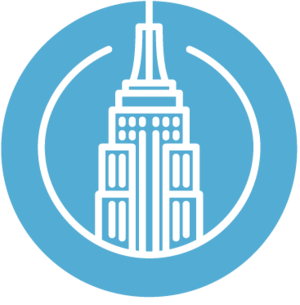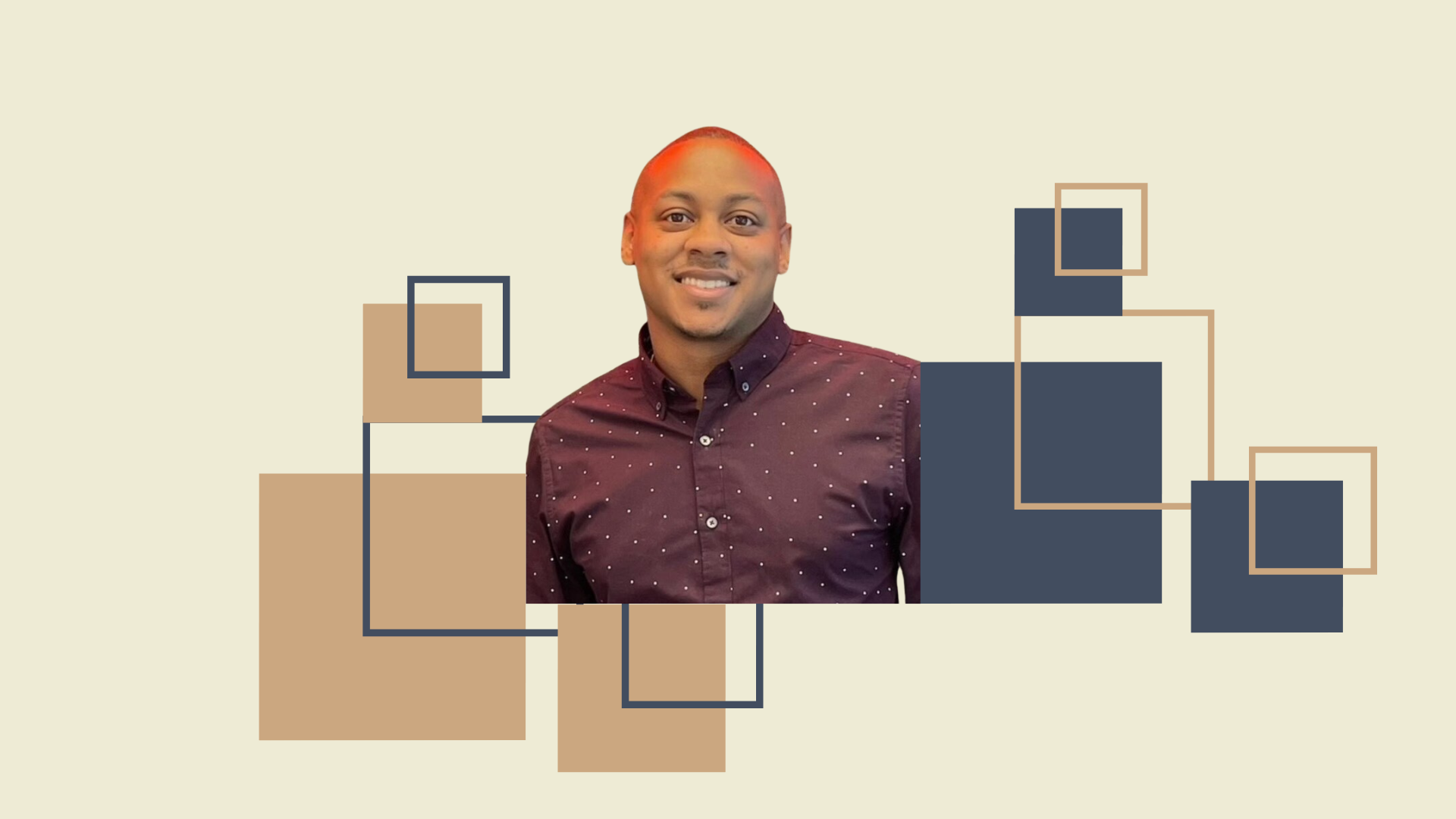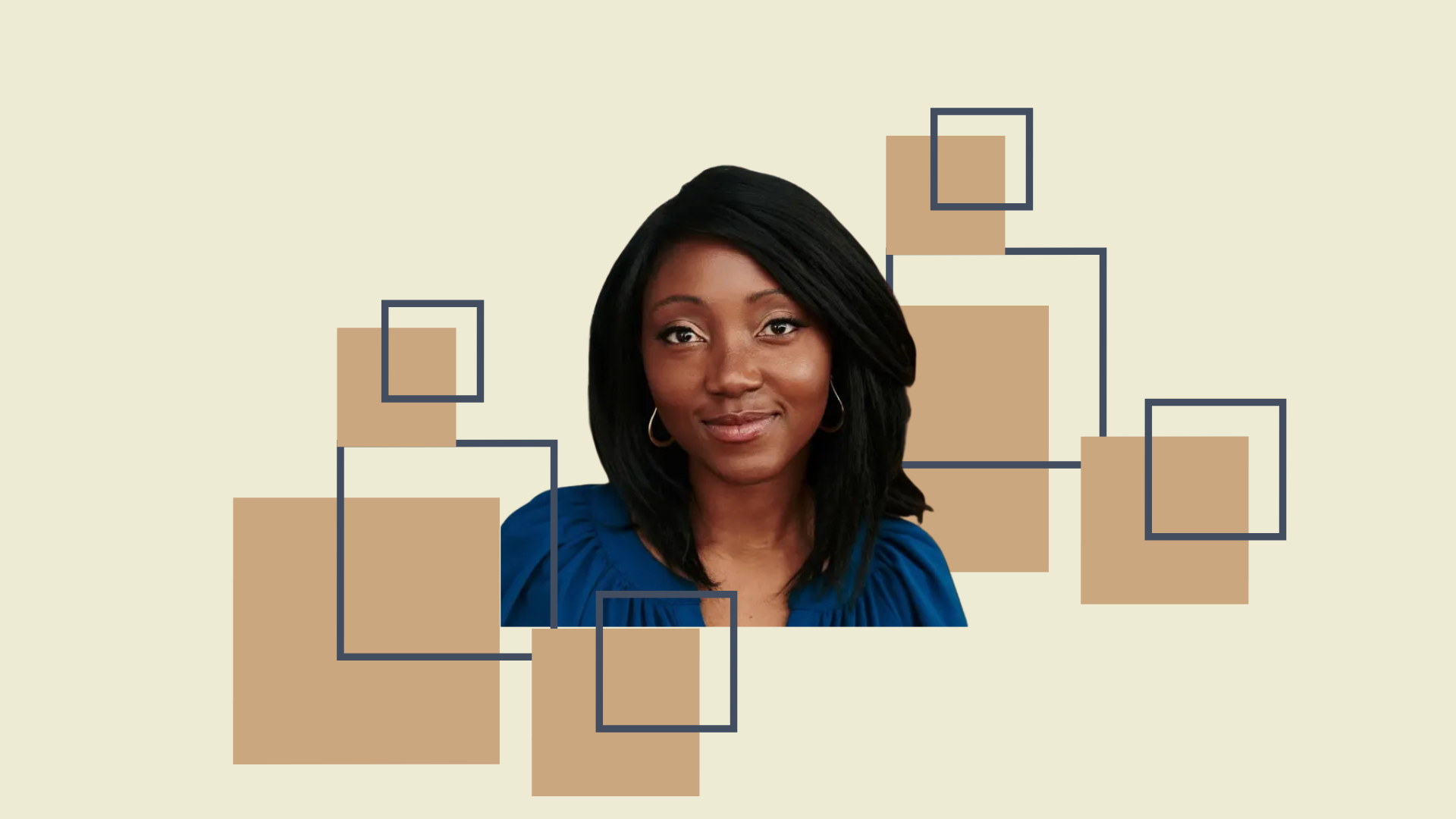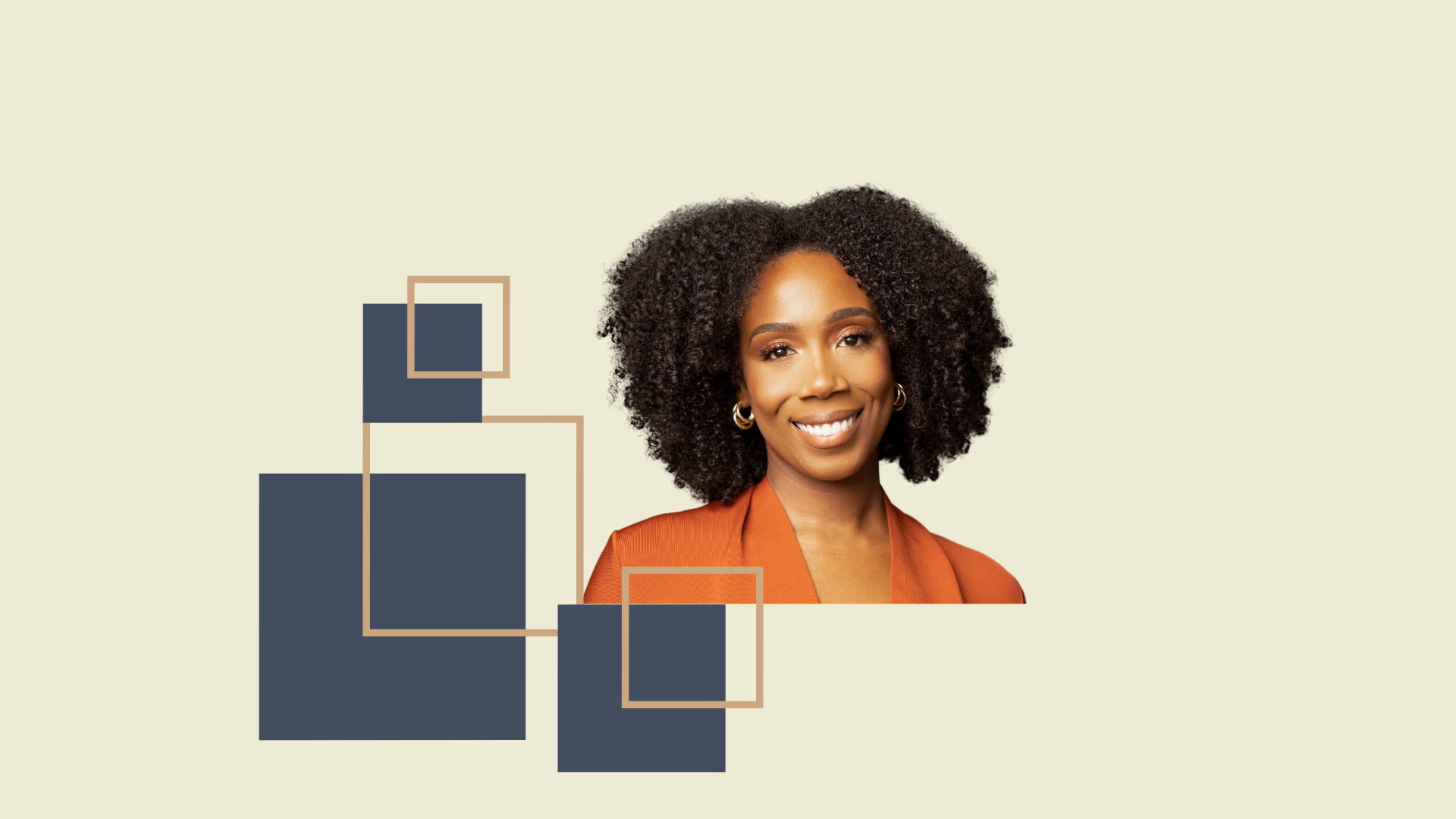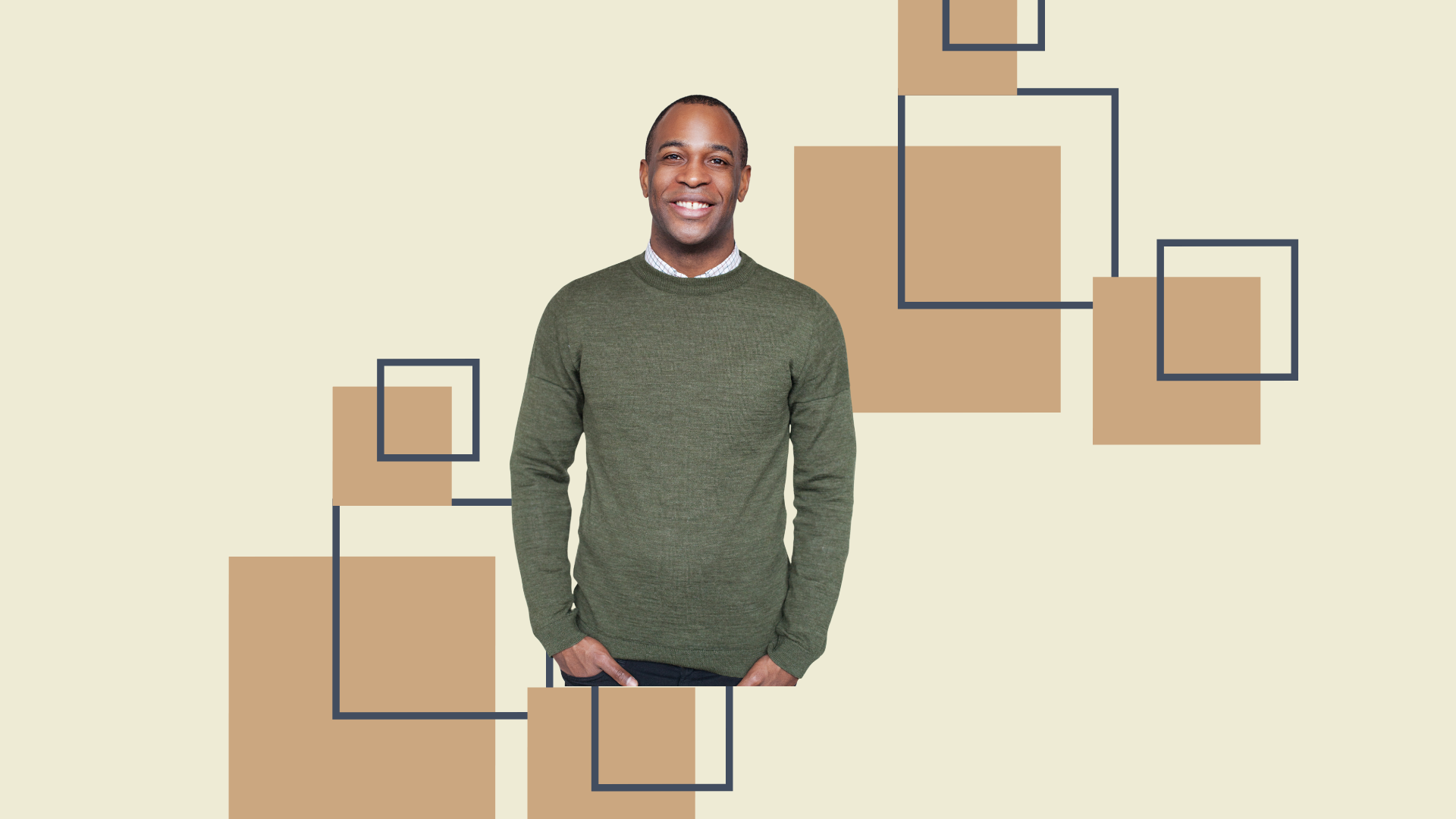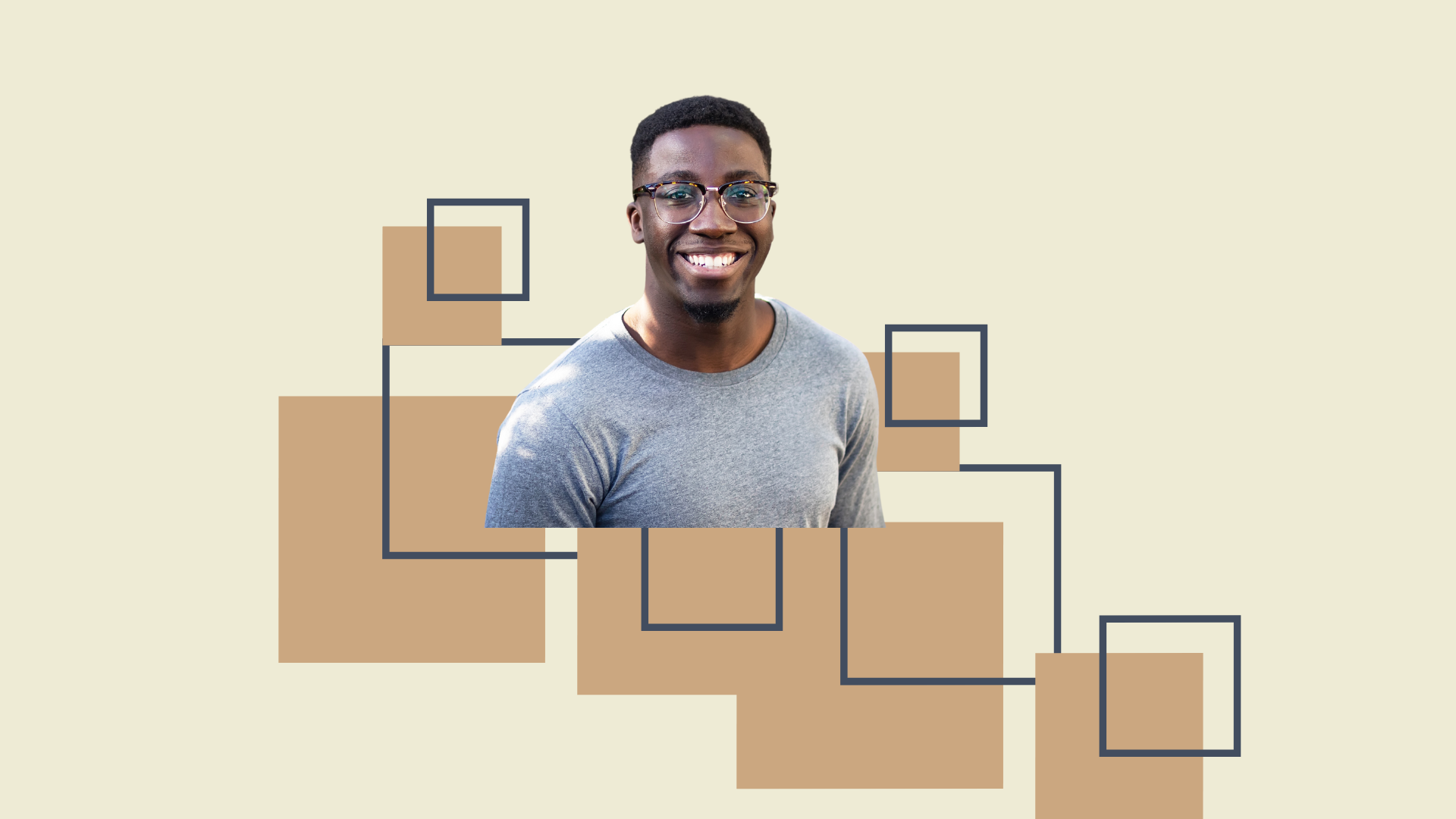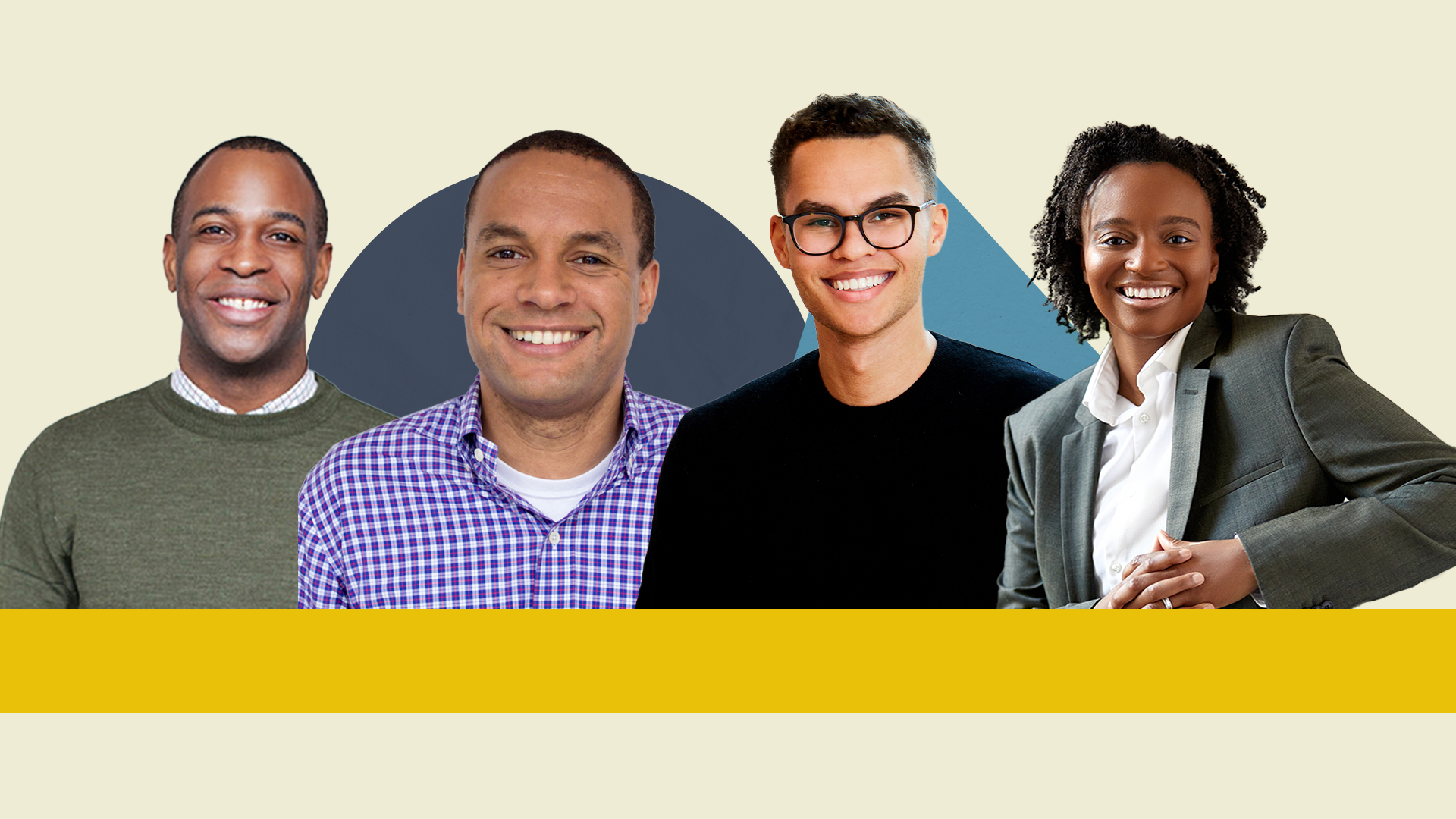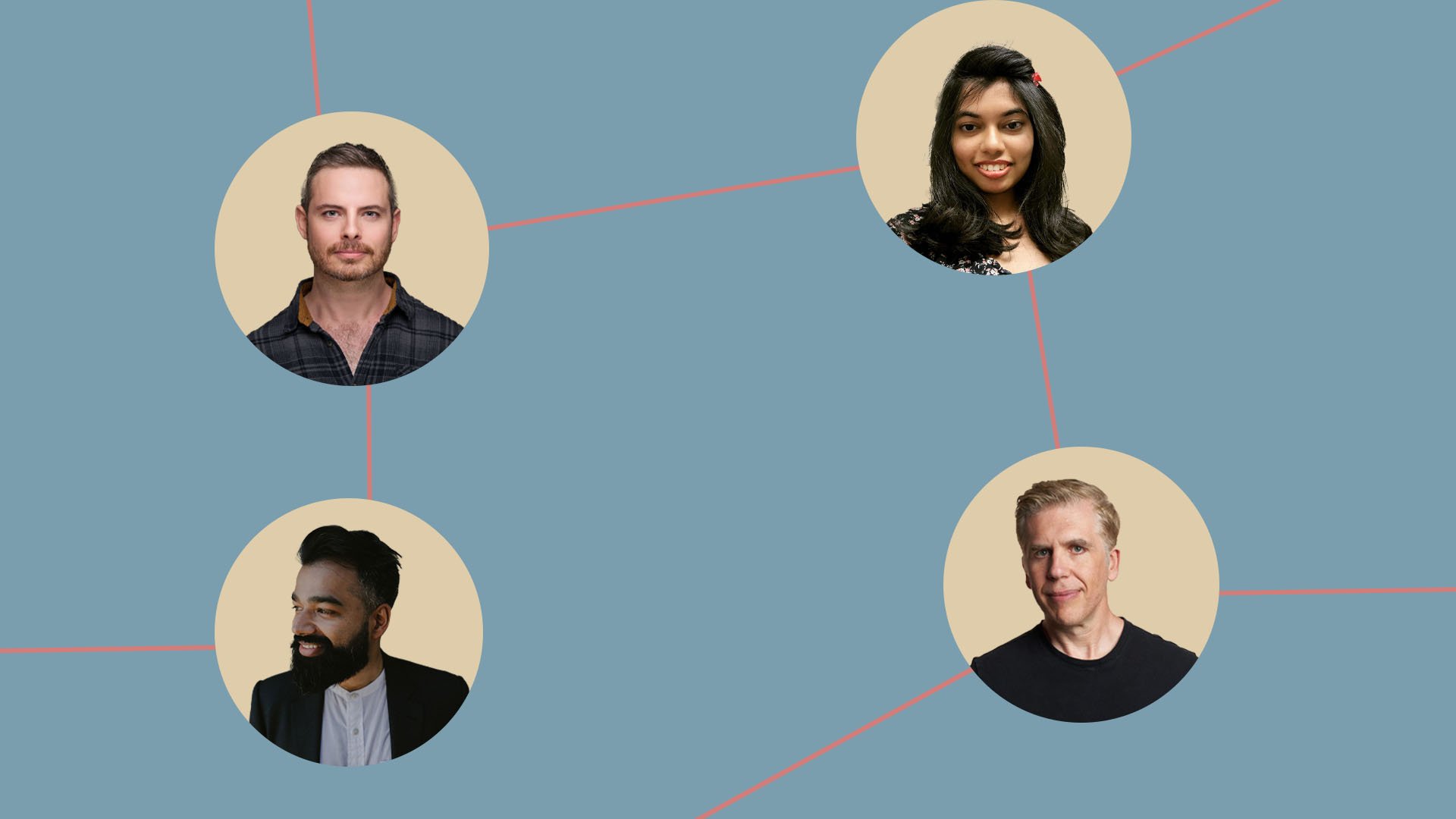Companies to Watch: Black Founders Shaping the NYC Tech Ecosystem
Even though global venture funding went up last year, funding to Black founders hit a multi-year low in 2024.
According to Crunchbase, in the U.S.:
Only around $730 million — or 0.4% of all funding — went to startups with a Black founder or co-founder last year.
In New York, Black and Hispanic workers make up ~20% of the tech workforce, double the level in San Francisco and Boston combined – but there’s still work to be done.
In honor of Black History Month, we caught up with five Black founders who are shaping the NYC tech ecosystem and innovating to improve health, HR, prison communications, digital accessibility, and athletic platforms.
For this edition of our Companies to Watch series, meet Aaron Mitchom (Freedom), Ami Kumordzie (Sika Health), Cierra Gross (Wrk Receipts), Lyle Adams (Spry), and Michael Bervell (TestParty).
Freedom
Aaron Mitchom
“There's something uniquely energizing about New York City that fuels innovation and pushes us to think more ambitiously about our potential impact.”
What does your company do? What problem is it working to solve?
Ourfreedom.ai is revolutionizing prison communication by providing an independent, affordable platform that helps families stay connected with incarcerated loved ones — without relying on costly prison phone contracts. Through our web-based AI platform, families can receive crystal-clear calls on any device, leave voice messages, and share photos and letters, all from a single, cost-effective account powered by FCC-licensed carriers. By bypassing traditional prison phone systems, we eliminate hidden fees and commissions, ensuring every dollar spent goes directly toward keeping families connected. We’re on track to raise $500,000 from investors and venture capital funds like Slauson, Nex3, and leading angel investors in the telecom and impact space. With their support, we’re making prison communication as accessible and affordable as regular phone service, giving families the freedom to stay close.
A question we like to ask every founder – why New York?
New York is home to some of the nation's leading prison reform organizations, including REFORM Alliance, Worth Rises, The Osborne Association, Children of Promise, and TeleStory. To succeed as a startup in this space, we need to work closely alongside organizations that are already making significant progress in criminal justice reform. We believe deeply in the power of collaboration to create meaningful change for our community, which makes being close to these changemakers essential to our mission.
Additionally, there's something uniquely energizing about New York City that fuels innovation and pushes us to think more ambitiously about our potential impact. I'm also hosting monthly Justice Tech happy hour events in the city to discuss other problems that could be solved with technology. I hope to bring together and inspire other changemakers who want to use their skills to make a difference.
You previously worked in the finance world. What made you want to make the jump into founding a tech company?
My journey from investment banking to entrepreneurship began with a profound moment at my Morehouse graduation in 2019. Vista Equity Partners founder Robert F. Smith eliminated our class's student debt with one condition – that we pay it forward by making a positive impact in our communities. This call to action resonated deeply with me during my time at Bank of America's Technology, Media & Telecom group, where I developed the skills to build something meaningful. The final push came from a conversation with my grandmother, who revealed she was still paying off her 1963 home loan due to repeatedly helping others with bail money. This revelation showed me an even larger industry untouched by modern innovation, where I could create real change.
What surprised you most about getting your company off the ground?
I've been amazed by the incredible impact of every team member. Each person who joins brings unique strengths and adds tremendous value. Watching them innovate and thrive has exceeded my expectations. By embracing their talents and giving them the freedom to explore new ideas, we've achieved more than I imagined. Their dedication inspires me daily as they push boundaries and redefine what's possible. Our company lives by the motto, "making the impossible possible," and our team embodies this spirit. They tackle challenges head-on, proving that creativity and hard work can turn ambitious goals into reality. Their ability to adapt, collaborate, and deliver results continues to impress me. I’m grateful to work alongside such passionate individuals who consistently make magic happen.
When/how did you become interested and passionate about the issue of prison communication?
Growing up, I watched family members go in and out of jail, experiencing firsthand the emotional and financial burdens of staying connected with incarcerated loved ones. The prison communication system is designed to profit off families, making it expensive and unnecessarily complex.
These barriers don’t just create financial strain—they deepen emotional distance. I saw the pain of missed moments, the frustration of unreliable systems, and the impossible choices families had to make between staying connected and covering basic needs. Knowing how critical communication is for maintaining hope and reducing recidivism, I became determined to change this system. That’s why I built a platform to make prison communication as seamless, affordable, and accessible as everyday phone service. Families deserve better, and we’re here to give them that freedom.
How do you view the tech industry’s role in creating innovative solutions to social justice issues?
The tech industry is uniquely positioned to tackle complex social justice challenges, and I'm encouraged to see more founders and investors prioritizing ventures that combine business success with meaningful impact.
What excites me is how technology can make previously inaccessible services available to everyone – whether that's education, healthcare, or in our case, helping families stay connected despite incarceration. The key is building solutions alongside the communities we serve, rather than for them. When we pair technical innovation with deep community understanding, we can create sustainable, scalable solutions that address systemic inequities while building valuable businesses. This approach not only drives positive social change but also represents an enormous market opportunity that the tech industry is just beginning to recognize.
As a founder, what are your self-care routines to recharge while still being heads down building a company?
As a founder, my daily walks through New York City have become my time to connect with God while recharging. The city's beat — from traffic noise to overheard chats — makes a good setting for prayer and clear thinking. Whether I'm making my way through busy streets or quiet neighborhoods, each walk helps me work through tough problems while having honest talks with God about what's on my mind.
These city walks keep me grounded, mixing my need for spiritual time with the energy that drives new thinking. The blend of people, buildings, and ever-changing streets gets my mind going in fresh ways, making each walk both a time of prayer and problem-solving. Every corner brings something new, and in this mix of movement and reflection, I find the clarity I need to move my business forward while staying close to God. Walking through the city reminds me to balance success with faith—there's room for both in this bustling place.
Time for some New York-themed rapid fire questions – where’s your favorite place to grab a slice of pizza in New York?
I love visiting Cuts & Slices, this incredible Black-owned pizzeria tucked away in Bed-Stuy. It's become one of my favorite spots in Brooklyn, not just for the amazing pizza but for how it perfectly captures the neighborhood's vibe. What sets it apart from other NYC pizza joints is their creative approach to toppings – they serve everything from oxtail to jerk chicken, bringing Caribbean flavors into the mix. Every time I stop by, I'm always impressed by how they've managed to stay true to classic New York pizza while adding their own unique cultural twist. The warm atmosphere and consistently great food keep me coming back. It's more than just another pizza place; it's become my go-to spot in Brooklyn's vibrant food scene.
Where’s your favorite coffee shop in New York?
I hope this doesn’t hurt my NYC reputation, but I’ve never been a coffee guy. I’m naturally a morning person, and adding coffee to my early-morning extroversion just doesn’t mix well. Instead, I love a good hot chocolate — especially homemade on a cold winter day. My go-to recipe starts with rich cocoa powder, steamed milk, and a touch of vanilla. I add a hint of cinnamon for warmth and sometimes top it off with whipped cream or marshmallows for extra comfort. The best part? That first sip when it’s perfectly hot and creamy. There’s something about making it from scratch that makes winter mornings even better. While others grab their coffee, I’ll stick with my homemade cup of warm perfection.
Do you have a favorite spot to escape the noise of the city?
As an extrovert, I thrive on the energy of the city and have no desire to escape it! Union Square is my favorite spot — it perfectly captures what makes New York so special. Live musicians fill the air with music, while street performers, commuters, and locals create an incredible urban symphony. The constant movement, the mix of personalities, and the vibrant atmosphere fuel my energy. There’s something about being surrounded by people, each on their own journey, that makes me feel connected and alive. Whether it’s the buzz of conversation, the rhythm of footsteps, or the creativity on display, it all recharges me. Union Square isn’t just a place — it’s an experience, a reminder of why I love this city so much.
What’s one piece of advice – that you’ve shared or was shared with you – on building a startup in New York City?
The best advice I’ve ever received is that everyone will offer their opinions, but a great CEO knows how to filter what’s valuable and what’s not. While guidance is helpful, no one understands your company better than you do. Trust your instincts.
Additionally, staying active in your community is essential. This city is an incredible place for networking, and opportunities often come from unexpected encounters. You never know who you’ll meet—a future investor, partner, or mentor could be just around the corner.Engage, listen, and put yourself in the right rooms. Success isn’t just about hard work; it’s about being in the right place at the right time and recognizing the moments that can change your journey. Stay open, stay present, and keep moving forward.
Sika Health
Ami Kumordzie
“With such a strong mix of industries, investors, and partners who get the space we're in, New York gives us everything we need to scale and make an impact.”
What does your company do? What problem is it working to solve?
Sika Health is a commerce platform that makes it easy for millions of shoppers and retailers to pay with HSA/FSA funds as effortlessly as using a gift card. With no eligibility checks, receipts, or reimbursements, customers simply choose Sika at checkout and enter their HSA/FSA card details. Sika partners with brands like Oura, Therabody, Avocado Green Mattress, and more.
There are 70 million Americans with HSA/FSA accounts, a $175B market where users often struggle to spend funds. Sika's customers spend twice as much with Sika compared to traditional credit cards, and return rates drop by 75%. Sika integrates seamlessly at checkout, unlocking easy access to $175B in annual tax-free health spend and enabling greater use of funds from health insurers and government programs.
A question we like to ask every founder – why New York?
New York is the perfect place to build Sika Health. Amazing health and commerce companies like Flatiron Health and Etsy have come out of this city, giving us access to top-notch talent. Plus, so many health brands either start or expand here, which puts us right in the heart of our market. The city is where healthcare, fintech, and e-commerce all meet, making it the ideal spot for Sika to grow. With such a strong mix of industries, investors, and partners who get the space we're in, New York gives us everything we need to scale and make an impact.
How does Sika simplify the HSA/FSA process?
Healthcare in the U.S. is often inaccessible, unaffordable, and overly complex. One prime example: millions of Americans qualify for HSAs or FSAs but don’t participate or fail to maximize their benefits, leaving billions unused. Many struggle to understand what expenses are eligible and miss opportunities to spend on proactive health items like fitness, nutrition, women’s health, and wearables.
Sika simplifies the process by integrating payments directly into retailer’s systems, ensuring compliance and eliminating manual claims. We also offer a Letter of Medical Necessity service, expanding eligible purchases to categories like fitness, nutrition, skin care and sleep. Through these features, we’ve unlocked up to 27% greater revenue for partners and helped consumers spend nearly $100 million more toward proactive health purchases.
What surprised you most about getting your company off the ground?
What surprised me most was how quickly the market took off after we pioneered as a first-mover in the HSA/FSA space. Initially, we had to do a lot of education around the opportunity, but now the interest has skyrocketed, with many companies actively seeking us out to meet their needs. It’s been incredible to watch so much innovation happening at once working toward the same goal of making healthcare more accessible and affordable. A rising tide lifts all boats, and having multiple companies focused on solving this problem from various angles only strengthens the industry as a whole. We’re all contributing to a greater purpose—helping people take control of their health and finances.
When/how did you become interested and passionate about helping companies and consumers with HSA/FSA benefits?
Honestly, it came from my own personal experience. Despite my medical training, it wasn’t until I entered the working world and struggled with my own health—like back pain and poor sleep—that I realized the power of these funds. After years of doctor visits and medications, what truly helped was using my HSA funds to buy a new mattress, made possible by a Letter of Medical Necessity. This experience transformed both my health and perspective. I saw how millions could be using their healthcare dollars proactively, investing in wellness. That sparked my mission to help consumers unlock the potential of their HSA/FSA funds while helping brands like Oura and Therabody tap into new revenue streams.
What was the inspiration behind the name “Sika Health”?
The name “Sika” comes from a Ghanaian word that means “cash.” As a proud Ghanaian, I wanted our name to reflect the company’s mission to help consumers save money and gain financial empowerment through better utilization of their healthcare savings.
As a founder, what are your self-care routines to recharge while still being heads down building a company?
My self-care routine starts with proper rest, so I’m all about winding down with mindfulness, meditation, and gratitude journaling to ensure I get a good night’s sleep. I’m militant about my 8 hours—no compromise there! A strict morning routine helps me kickstart the day right. I’ll usually start with a jog along the Hudson or some yoga to get my body moving and my mind clear. After that, I’ll do some meditation and set intentions for the day. It’s all about staying energized and focused, which helps me keep up with the intensity of building a company. And when things get overwhelming, I make sure to carve out time upstate to see family and friends.
Time for some New York-themed rapid fire questions – where’s your favorite place to grab a slice of pizza in New York?
My favorite place to grab a slice of pizza in New York is Lombardi’s Pizza. It’s the oldest pizzeria in the city, and the coal-oven pies are amazing. You really can’t beat the history and the flavor!
Where’s your favorite coffee shop in New York?
I’m not really a coffee drinker, but I do love a good matcha! My go-to these days is the Blue Bottle in Hudson Yards. It’s situated right in the bustle of the mall, so it’s a great spot to grab a matcha latte while soaking in the energy of the area. The vibe is perfect for a quick recharge, and the quality of their drinks always hits the spot. It’s a nice little escape from the hustle and bustle, even if it’s just for a few minutes.
Do you have a favorite spot to escape the noise of the city?
One of my favorite ways to escape the noise of the city is with a long walk on the High Line. It’s a peaceful retreat above the streets, with great views, greenery, and a calming atmosphere. I usually cap it off with a visit to Little Island, which is a beautiful spot right on the water. The live shows, the art, and the unique architecture there make it feel like a little oasis in the middle of Manhattan. Watching the sunset from Little Island is especially magical—it’s the perfect way to recharge and take a break from the constant buzz of the city.
What’s one piece of advice – that you’ve shared or was shared with you – on building a startup in New York City?
My advice would be: there’s always a way. Living in New York has shown me that—whether it’s the resources, support, or inspiration around you, this city has a unique energy where people are driven. If you keep showing up and put yourself out there, opportunities will come. I’ve been lucky to build a great founder community around me, and that’s been essential. The key is knowing that no matter how tough things get, there’s a network here that’s got your back. As an immigrant, I wouldn’t want to be building my company anywhere else. New York offers the chance to turn dreams into reality, as long as you stay persistent and keep pushing forward.
Wrk Receipts
Cierra Gross
“Anything can happen in NY, and there's no better place to build.”
What does your company do? What problem is it working to solve?
Wrk Receipts empowers employees to document workplace issues through a free mobile app where our AI assistant Jayla guides them through building legally-relevant evidence of violations in real-time. We solve two critical problems: for employees, the challenge of properly documenting workplace violations and getting guidance on their rights; for employment attorneys, the expensive and inefficient process of finding and retaining clients while gathering strong evidence for cases.
A question we like to ask every founder – why New York?
A better question is, why not? Although I was born in North Carolina, my family is from the Bronx. I spent many summers as a child in NYC with my grandmother, so NYC has a very special place in my heart. On top of that, NYC has an excellent ecosystem for founders building great things. Anything can happen in NY, and there's no better place to build.
How does Wrk Receipts use AI to achieve its mission of improving employees' lives and work experiences?
Wrk Receipts uses AI to improve employees' lives by providing immediate, personalized guidance through our AI assistant Jayla. Unlike typical LLMs that rely on user prompts and generic responses, Jayla delivers personalized guidance by analyzing each user's specific demographic information and workplace documentation. When an employee logs an incident, Jayla can identify potential violations, suggest relevant documentation steps, and provide workplace rights information tailored to their unique situation - all without requiring any prompting or legal knowledge from the employee.
Our approach is unique because Jayla provides guidance based on the employee's individual documented experiences and workplace context, removing the knowledge barriers that often prevent employees from using AI effectively. For example, suppose an employee has documented a scheduling change pattern. In that case, Jayla can help them understand if this may indicate potential wage violations and guide them on what specific details to document. Our promptless interface means employees don't need to know what questions to ask or how to frame their situations legally - they simply share what happened, and Jayla provides guidance personalized to their documented experiences while helping them properly record evidence and understand their rights.
When / how did you become passionate about HR tech and the HR industry as a whole?
Despite being an HR professional, I, like many of our users, experienced adversity at work. Fortunately, I knew how to navigate it because I benefited from the knowledge I had gained from years working in corporate HR. However, I haven’t forgotten the impact those adversities had on my physical and mental health. That experience made me obsessed with solving this problem and getting as many people unrestricted access to the information they need to succeed at work.
You worked in HR and tech before becoming a founder — what made you make the jump to founding your own company?
It was one of those things where all the stars aligned. I quit my job just out of pure exhaustion, intending to take a year-long sabbatical, but then started the direct-to-employee consulting vertical, Caged Bird HR, to make money and stay up to date with the HR world while galavanting around Europe. One hour after I posted on my Instagram, someone booked an appointment, and it took off from there. Before I knew it, we had made $1 million in revenue. Then I said I could reach more people with AI/technology and started building Wrkreceipts in stealth. And the rest is history.
As a founder, what are your self-care routines to recharge while still being heads down building a company?
Going from 0 to 1 requires about three years of non-stop work, and I've put my time in. However, I work out, get massages, read, and travel to get a break.
Time for some New York-themed rapid fire questions – where’s your favorite place to grab a slice of pizza in New York?
Screamers Pizzeria.
Where’s your favorite coffee shop in New York?
Coffee Project in Fort Greene.
Do you have a favorite spot to escape the noise of the city?
Prospect Park for sure.
What’s one piece of advice – that you’ve shared or was shared with you – on building a startup in New York City?
Don’t read your own news clippings. NYC is a big, shiny city, and as a founder, you can get caught up in the illusion of impact (speaking engagements, social media, events, and conferences). These things are great, but you must stay focused on the business and its progress. The job is not done until it is done. Stay focused.
Spry
Lyle Adams
“Don't let ‘no’ discourage you. As a founder, ‘no’ will be significantly more common than "yes," but hearing "no" can be valuable if you learn from the experience.”
Spry is an all-in-one athletics management tool founded in New York. Why did you found the company in New York?
I wanted to be where all the sports and entertainment action was, so I came to New York for grad school at Columbia. After I graduated, New York was the perfect place to launch Spry.
You were a Division I NCAA athlete on the Wake Forest championship soccer team — how did that experience inspire you to fund Spry?
Spry was heavily influenced by my experiences as a college and professional athlete. I wanted to create a platform that would increase efficiency and allow them to focus on developing student athletes, as many of my former teammates had gone on to pursue careers in sports and faced numerous challenges. To ensure that Spry not only met but exceeded expectations, I relied on feedback, suggestions, and insights from teammates, classmates, and peers throughout the development process.
How has the rise of the Name, Image, and Likeness (NIL) industry impacted Spry’s product?
Spry's first product was an NIL Management solution, and NIL was the reason Spry was created. We've expanded our product offering since then, but NIL is still special to me.
After a successful athletic career in college, you made the jump to the tech sector. What was the catalyst for doing so?
TBH, I needed a job. I was lost after my professional career ended, unsure of my next steps. I had heard positive things about the tech industry and began exploring opportunities. My first tech job was at LivingSocial, followed by a position at Uber in the summer of 2012.
As a founder, what are your self-care routines to recharge while still being heads down building a company?
I try to spend at least 90 minutes outside every day (rain or shine). I’ll try to disconnect during one of my walks to clear my head and recalibrate. Outside of my walks and soccer, I enjoy going to the movies or playing board games with my wife and friends.
Time for some New York-themed rapid fire questions – where’s your favorite place to grab a slice of pizza in New York?
L'industrie in Williamsburg. No question the best slice in NYC.
Where’s your favorite coffee shop in New York?
Bibliotheque; cafe by day, wine bar by night.
Do you have a favorite spot to escape the noise of the city?
I like the noise. However, I do like visiting my friend’s farm in Connecticut.
What’s one piece of advice – that you’ve shared or was shared with you – on building a startup in New York City?
Don't let "no" discourage you. As a founder, "no" will be significantly more common than "yes," but hearing "no" can be valuable if you learn from the experience.
Another helpful tip is to strive for more weekly wins than setbacks. You'll experience setbacks as a founder, but having more wins than setbacks means you're on the path to success.
TestParty
Michael Bervell
“The city moves fast — so should you. Test, iterate, and get in front of customers quickly. New Yorkers won’t sugarcoat their feedback, and that’s a gift.”
What does your company do? What problem is it working to solve?
TestParty automates digital accessibility. We help businesses ensure that their websites meet compliance standards like the Americans with Disabilities Act (ADA) and European Accessibility Act (EAA) by complying with the Web Content Accessibility Guidelines (WCAG). Today, over 97% of websites do not meet these standards due to slow manual remediation and complexity which leads to massive lawsuits and losses in revenue. Our AI-powered tool provides real-time code audits, automated fixes, and compliance tracking helping companies build inclusive digital experiences seamlessly. Since closing our $4m seed round 12 months ago, we’ve grown to support millions of users globally and our technology makes accessible millions of eCommerce dollars.
A question we like to ask every founder – why New York?
When choosing an HQ, we really wanted to build in a city that had accessible infrastructure. Today 75% of TestParty employees are disabled or have an immediate family member with a disability. For us, accessibility isn’t just built into our mission, it’s in our DNA. Thanks to NYC leaders like Quemuel Arroyo (Chief Accessibility Officer at State of NY Metropolitan Transportation Authority), NYC is one of the more accessible states for us to build. Outside of this, New York has so many opportunities for team bonding in off-hours that it was a no brainer.
How does TestParty “build a more accessible internet”?
Our software integrates directly into the development process, identifying and fixing accessibility issues before they ever reach end users. Unlike traditional accessibility audits that produce long reports without solutions, TestParty provides actionable fixes in real time and directly in the developer’s IDE. We empower developers, designers, and product teams to build inclusively from the start, rather than treating accessibility as an afterthought.
We’ve seen success working with eCommerce sites (like Shopify), customers in Europe, and regulated industries (education, government, fintech, healthcare, etc.). Reach out if you want to learn more!
What surprised you most about getting your company off the ground?
About five years ago, I got a Master’s in communications. At the time it was just a fun way to keep learning outside of work, but in retrospect I’ve been surprised at how much of early-stage success comes from storytelling. Investors, customers, and even employees need a clear, compelling reason to believe in what you’re building. I knew the problem of digital inaccessibility was massive, but I had to refine how we communicated our vision to make others see it too.
When/how did you become passionate about improving digital accessibility?
About 7 years ago, I worked as an accessibility consultant for Google and saw firsthand how difficult it was for companies to meet accessibility standards. I re-discovered this when my co-founder Jason worked at Twitch, where accessibility became a major challenge after an ADA lawsuit. From there, I dove deep into the space, consulting for the UN on accessibility strategies. The more I learned, the more I realized how big the problem was and how much impact the right technology could have. What if we made accessibility even more accessible?
This isn’t your first time founding a company or organization. What lessons have you taken from previous founding experiences?
Momentum matters. My previous company was “Hugs for __,” an international 501(c)3 non-profit organization that operated in 5 countries and won the National Caring Award alongside Pope Francis and Dikembe Mutombo. Our best days came when the team was moving forward, together, and aligned. Rowing quickly in the same direction. Whether it’s a nonprofit or a venture-backed startup, keeping energy high and moving quickly—without sacrificing quality — is critical. Another key lesson: Surround yourself with smart, mission-aligned people who challenge you to think bigger.
As a founder, what are your self-care routines to recharge while still being heads down building a company?
At least once every two weeks, I have a ritual of heading to Othership (a sauna + ice bath), eating a dark chocolate chip cookie from Levain Bakery, and watching a classic movie from the 70s. It totally refills my cup.
Time for some New York-themed rapid fire questions – where’s your favorite place to grab a slice of pizza in New York?
See No Evil Pizza! If you’re lucky, try to find Ed who owns the place and tell him Michael sent ya’.
Where’s your favorite coffee shop in New York?
I don’t drink coffee so instead I’ve been relaxing in the tea library at Genesis House. They have a collection of great rare books curated by Assouline and Arumjigi that’s unmatched.
Do you have a favorite spot to escape the noise of the city?
Recently, I’ve started taking acting classes: so my studio on 50th and Broadway has become my oasis. It’s in the heart of Times Square, but somehow is super calming.
What’s one piece of advice – that you’ve shared or was shared with you – on building a startup in New York City?
The city moves fast — so should you. Test, iterate, and get in front of customers quickly. New Yorkers won’t sugarcoat their feedback, and that’s a gift.
